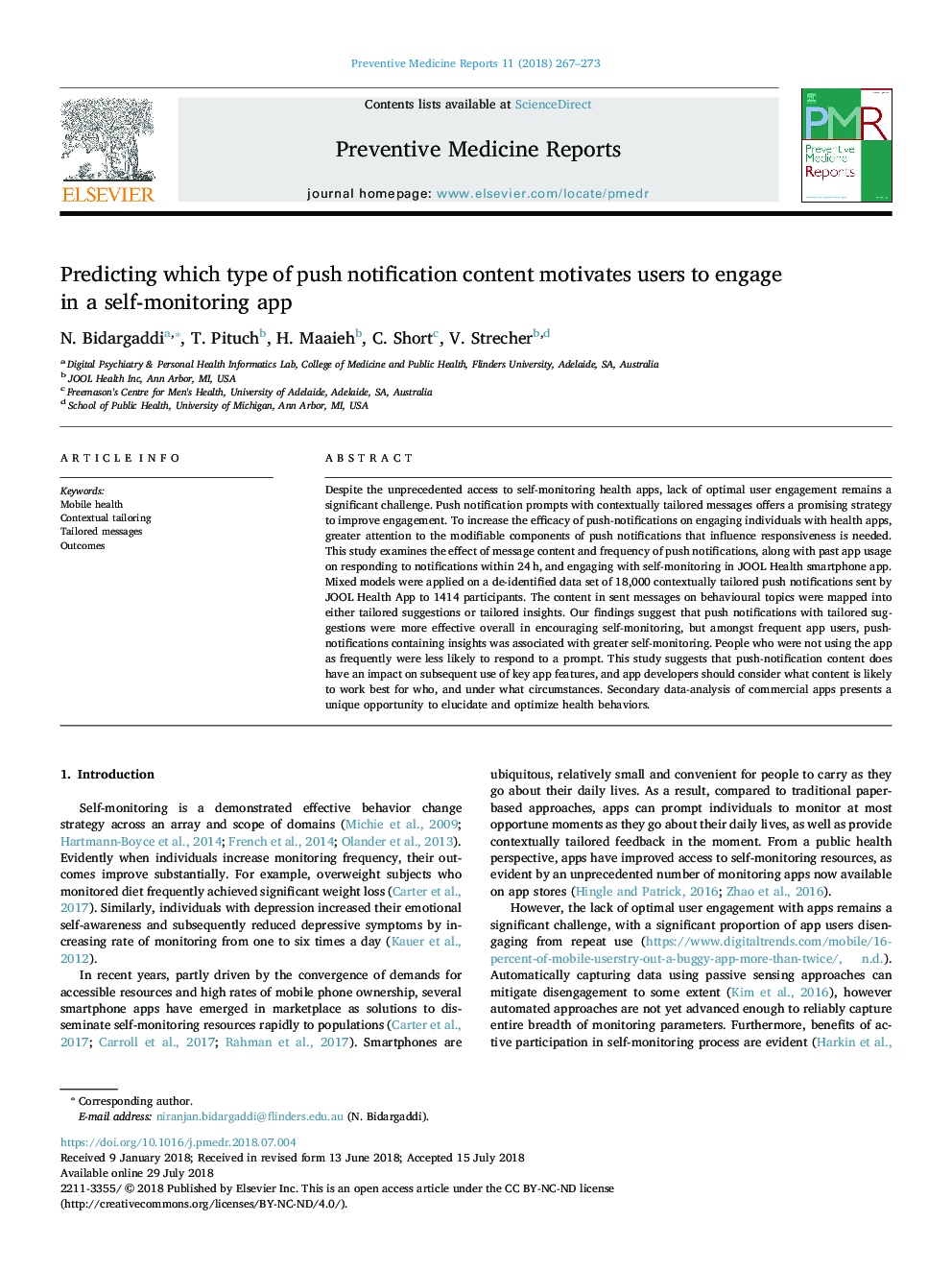| Article ID | Journal | Published Year | Pages | File Type |
|---|---|---|---|---|
| 8818509 | Preventive Medicine Reports | 2018 | 7 Pages |
Abstract
Despite the unprecedented access to self-monitoring health apps, lack of optimal user engagement remains a significant challenge. Push notification prompts with contextually tailored messages offers a promising strategy to improve engagement. To increase the efficacy of push-notifications on engaging individuals with health apps, greater attention to the modifiable components of push notifications that influence responsiveness is needed. This study examines the effect of message content and frequency of push notifications, along with past app usage on responding to notifications within 24â¯h, and engaging with self-monitoring in JOOL Health smartphone app. Mixed models were applied on a de-identified data set of 18,000 contextually tailored push notifications sent by JOOL Health App to 1414 participants. The content in sent messages on behavioural topics were mapped into either tailored suggestions or tailored insights. Our findings suggest that push notifications with tailored suggestions were more effective overall in encouraging self-monitoring, but amongst frequent app users, push-notifications containing insights was associated with greater self-monitoring. People who were not using the app as frequently were less likely to respond to a prompt. This study suggests that push-notification content does have an impact on subsequent use of key app features, and app developers should consider what content is likely to work best for who, and under what circumstances. Secondary data-analysis of commercial apps presents a unique opportunity to elucidate and optimize health behaviors.
Keywords
Related Topics
Health Sciences
Medicine and Dentistry
Public Health and Health Policy
Authors
N. Bidargaddi, T. Pituch, H. Maaieh, C. Short, V. Strecher,
